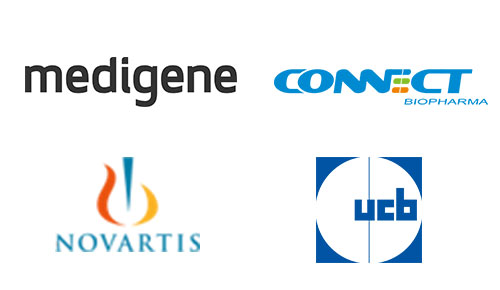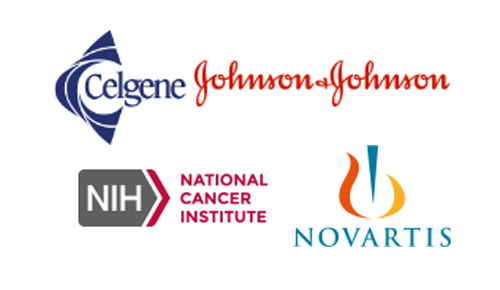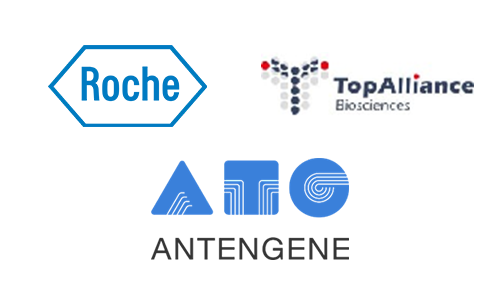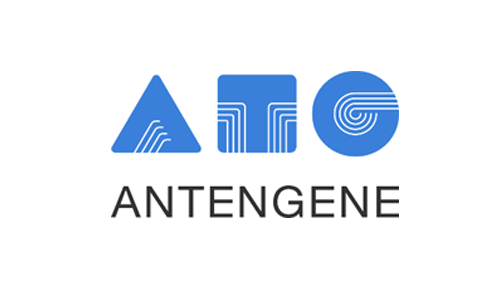
Donald Lung, JD, MBA
Executive Director
 Learn more
Learn more
Mr. Donald Lung was appointed as the Chief Financial Officer (CFO) of Antengene in June 2020 and has led the overall finance operations of Antengene since joining the company and will be the Interim CFO of Antennova.
Mr. Lung has over 16 years of experience in investment banking and public equities. From 2004 to 2008, Mr. Lung worked at Goldman Sachs (Asia) L.L.C. He was then engaged in the asset management business at Pine River Capital Management from 2012 to 2017 and at Myriad Asset Management Limited from 2017 to 2019. From 2019 to 2020, Mr. Lung worked as a Portfolio Manager at BFAM Partners (Hong Kong) Limited.
Mr. Lung received his Bachelor of Arts degree in economics and political science from Yale University in 2004. He also obtained a Master’s degree in Business Administration and a Juris Doctor degree from the Chinese University of Hong Kong, both in 2015.

Anne Altmeyer, Ph.D., MBA, MPH
Independent Non-executive Director
 Learn more
Learn more
Mr. Donald Lung was appointed as the Chief Financial Officer (CFO) of Antengene in June 2020 and has led the overall finance operations of Antengene since joining the company and will be the Interim CFO of Antennova.
Mr. Lung has over 16 years of experience in investment banking and public equities. From 2004 to 2008, Mr. Lung worked at Goldman Sachs (Asia) L.L.C. He was then engaged in the asset management business at Pine River Capital Management from 2012 to 2017 and at Myriad Asset Management Limited from 2017 to 2019. From 2019 to 2020, Mr. Lung worked as a Portfolio Manager at BFAM Partners (Hong Kong) Limited.
Mr. Lung received his Bachelor of Arts degree in economics and political science from Yale University in 2004. He also obtained a Master’s degree in Business Administration and a Juris Doctor degree from the Chinese University of Hong Kong, both in 2015.
Dr. Anne Altmeyer has 25 years of experience in developing and implementing strategies in R&D and Corporate Development in the pharmaceutical and biotech industries. She is the former President, Chief Executive, and member of the Board of Directors of TigaTx, Inc. Before that, she served as the Chief Business Officer at Sigilon Therapeutics, Inc. (acquired by Eli Lilly) and at Adicet Bio, Inc. Dr. Altmeyer also held roles of increasing responsibilities in large pharmaceutical organizations, including Vice President of Global Business Development at Baxalta (acquired by Shire); Vice President of Oncology Business Development and Companion Diagnostics at Novartis; Executive Director Project Leadership at Novartis; and Associate Director Project Management at Merck & Co.
Dr. Altmeyer is also an Independent Board Member of Corbus Pharmaceuticals.
Dr. Altmeyer received a Ph.D. in molecular immunology from Strasbourg University, France, and performed a postdoctoral fellowship at the New York University School of Medicine and was a research associate at Cornell University Medical College. Anne has also received an M.B.A. from Rutgers University and an M.P.H. from the University of Medicine and Dentistry of New Jersey.
Dr. Selwyn Ho currently serves as Chief Executive Officer of Medigene AG (FRA: MDG1), an early-stage immuno-oncology company focused on the development of T cell receptor guided therapies for solid tumors. In addition, he is an Executive in Residence at New Rhein Healthcare Investors, an investment firm applying a private equity business model to venture capital investing, and also as a Non-Executive Director at Immodulon Therapeutics Ltd, a private, late-stage clinical company developing a novel, broad spectrum immunomodulator, focused on treatment of pancreatic cancer, and as a Non-Executive Director for Peptomyc S.L, a private, clinical stage company focused on developing first-in-class mini-proteins targeting MYC, the most dysregulated oncogene in human cancers.
Prior to Medigene, Dr. Ho served as Chief Business Officer at Connect Biopharma (NASDAQ: CNTB), a global, clinical-stage biopharmaceutical company focused on developing innovative therapies that treat chronic inflammatory diseases. Dr. Ho has also held leadership positions at Dermira (acquired by Lilly in 2020), UCB, Allergan (Acquired by Abbvie in 2020), Novartis and AstraZeneca.
Dr. Ho received his medical degree (MB BS) and Bachelor of Science (BSc) in Pharmacology from Imperial College, University of London, and post-graduate qualifications (Dip Pharm Med) in Pharmaceutical Medicine from the Faculty of Pharmaceutical Physicians, Royal College of Physicians in the U.K.

Selwyn Ho, MB BS, B.Sc
Independent Non-executive Director
 Learn more
Learn more
Dr. Selwyn Ho currently serves as Chief Executive Officer of Medigene AG (FRA: MDG1), an early-stage immuno-oncology company focused on the development of T cell receptor guided therapies for solid tumors. In addition, he is an Executive in Residence at New Rhein Healthcare Investors, an investment firm applying a private equity business model to venture capital investing, and also as a Non-Executive Director at Immodulon Therapeutics Ltd, a private, late-stage clinical company developing a novel, broad spectrum immunomodulator, focused on treatment of pancreatic cancer, and as a Non-Executive Director for Peptomyc S.L, a private, clinical stage company focused on developing first-in-class mini-proteins targeting MYC, the most dysregulated oncogene in human cancers.
Prior to Medigene, Dr. Ho served as Chief Business Officer at Connect Biopharma (NASDAQ: CNTB), a global, clinical-stage biopharmaceutical company focused on developing innovative therapies that treat chronic inflammatory diseases. Dr. Ho has also held leadership positions at Dermira (acquired by Lilly in 2020), UCB, Allergan (Acquired by Abbvie in 2020), Novartis and AstraZeneca.
Dr. Ho received his medical degree (MB BS) and Bachelor of Science (BSc) in Pharmacology from Imperial College, University of London, and post-graduate qualifications (Dip Pharm Med) in Pharmaceutical Medicine from the Faculty of Pharmaceutical Physicians, Royal College of Physicians in the U.K.
















